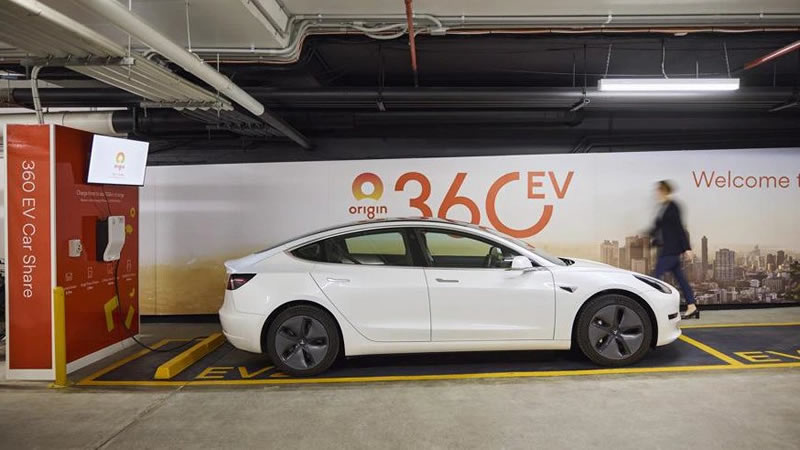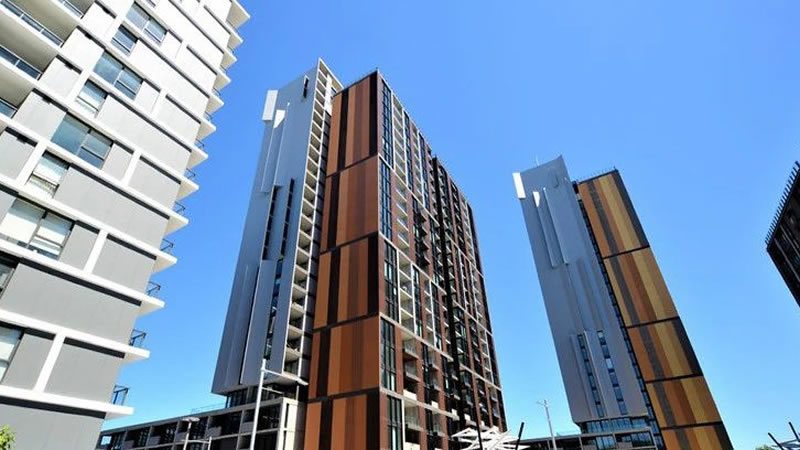| < Return |
|
Strata explained: Your most pressing strata questions answered
From short-term rental policies to guidelines for electric vehicle charging stations, Stephen Brell, president of the Strata Community Association answers all your burning strata questions.
 Stephen Brell Stephen Brell  May 31, 2023 May 31, 2023
|
|
| Original link: https://www.dailytelegraph.com.au/property/strata-explained-your-most-pressing-strata-questions-answered/news-story/ |
Across Australia, renters are feeling the pinch caused by rising rents coinciding with the sharp increase in living costs. |
At least one in five Australians live in strata complexes, including apartments and townhouses. That’s around 5 million people.
And with PropTrack data showing unit prices remain substantially more affordable than house prices, it’s conceivable that the population of people living in strata will continue to increase.
When it comes to living in a strata complex, understanding your rights as well as your obligations is essential for creating a harmonious environment for all residents to enjoy.
From the rising cost of insurance premiums and levies to dealing with noise and Airbnb listings. Stephen Brell, President of Strata Community Association (NSW) answers some of the most common conundrums of strata living.
|
|
What are my rights when it comes to noisy residents living in my apartment complex?
When dealing with noise issues in a strata complex, the first step is to try to talk to the neighbour causing the noise. If that doesn’t work, reaching out to the strata manager or committee is recommended to see if others are also affected by the noise.
|

There is nothing strata residents can do about natural noise. |
The action taken will depend on the nature of the breach. When dealing with late-night parties, council restrictions and the police may also be involved.
Squeaky floorboards are an issue with the building code of Australia, while natural sounds like babies crying may require both parties to put in place some measures to mitigate the sound.
|
|
What can I do if there are parking issues in my complex?
Your allocated car park is considered private property, so strata management is limited in its ability to take action against the offenders. However, your owners’s corporation may decide to hold a grievance meeting and issue a breach notice. If the behaviour persists, the matter can then be taken to your local tribunal.
MORE: What your home will be worth in 2028: every suburb revealed
Visitor car parking spaces are common areas and cannot be used by residents or non-visitors. If someone breaches this bylaw, contact your strata manager to resolve it or issue a breach and take further action if necessary, such as towing of the vehicle.
|
|
Are pets allowed in strata buildings?
Pet ownership rules vary by state for strata community properties, so residents should always refer to their state laws as well as their individual strata bylaws.
In NSW, pets are allowed with certain conditions and owners’ corporations should not unreasonably withhold approval. In Queensland, pets are allowed on strata-titled property, and in Victoria, landlords can only refuse a tenant’s request to keep a pet with the approval of the Victorian Civil and Administrative Tribunal.
|

Pet policies vary across buildings. |
If you believe a fellow resident is breaching the strata bylaws, keep a record of events and contact your strata manager who can attempt to resolve the situation.
|
|
Can we stop people in our building from renting their apartments out on Airbnb?
This will depend entirely on what jurisdiction you live in as laws vary from state to state.
A general tenant of strata legislation across most jurisdictions in Australia is that an Owners Corporation or Body Corporate cannot pass a by-law that attempts to restrict the transfer, lease or dealing of a lot.
However, these rules were written prior to the emergence of short-term holiday letting sites like Airbnb and Stayz, and some states have amended their legislation to change with the times.
|

Short-stay accommodation rules vary by state. |
The NSW government introduced a new policy for short-term rental accommodation (STRA) in April 2021, requiring registration of all STRA listings on hosting sites like Airbnb within the state. Strata can now take action against owners who breach regulations, and buildings may have their own register for STRA.
NSW strata owners are also permitted to take this one step further and pass by-laws restricting owner-investors from leasing their lots for STRA, however, owner-occupiers may continue to lease parts of their lots as STRA.
Residents should check their building’s bylaws to see if STRA is allowed and how it must be managed.
Victoria has not banned STRA in strata, however, they have amended the Owners Corporation Act to make it possible for unruly tenants to be fined and pay compensation to affected apartments for loss of amenities, and temporary prohibition orders can be placed on lot owners restricting STRA where they have found to be in breach of the new requirements.
In Western Australia, each local council has their own by-laws and some have adopted specific by-laws when it comes to STRA. The first step would be to check with your local council ordinances to determine if any restrictions apply.
At a state level, the government is considering specific changes to STRA for Strata Companies (Body Corporates), similar to those that have been adopted in NSW.
Meanwhile, there have been no specific changes to the law in Queensland, South Australia, Tasmania or the ACT preventing strata owners from letting their lots as STRA.
Due to the complexity, variety and fluid nature of STRA reforms in each state, Owners Corporations and Body Corporates that are considering passing by-laws that attempt to restrict STRA should seek specialist legal advice appropriate to their jurisdiction.
|
|
Am I allowed to install electric vehicle charging equipment in my apartment garage?
This will depend entirely on the infrastructure in your building, the type of EV charging equipment you wish to install as well as the by-laws in force for your scheme.
Each installation will need to be treated on a case-by-case basis.
|

Demand for EV charging facilities is growing. |
EV chargers place additional demands on the electricity grid and your building’s infrastructure, and when considering granting approval for individual installations, Owners Corporations and strata committees should keep the needs of the entire building in mind.
Even if you are fortunate enough to have cabling and power points that service your garage or car space, installing an EV charging point may require an upgrade to the common property switchboards to cope with the extra demand, and the more residents that install EV chargers, the more demand on your building’s electricity infrastructure.
When Owners Corporations or Strata Committee are considering allowing residents to install EV charging points in their garages, they need to think of the bigger picture and adopt a global approach that suits the needs of all residents and their scheme.
By way of example, when the internet first arrived in the late 1990s, most strata buildings had a limited number of phone lines connected to their building. As the internet became more popular, late adopters found that all available phone lines to their building had been used by other residents, and were unable (for a time) to connect their own dial-up connection to their apartment.
It’s likely that a similar phenomenon would occur when it comes to EV charging points – only a certain number of charging points will be able to be installed before it impacts the rest of the building.
|

EVs can put additional weight load on buildings. |
These limitations could be managed to a degree by restricting the installation of ‘fast chargers’ and requiring residents to only charge their vehicles during off-peak times. An appropriately worded By-law could achieve this.
There are other practical issues that need to be considered and, given this relatively new technology, there are several unknowns.
Another factor that few have considered is the impact on structural loads. EV vehicles are around 30% heavier than standard vehicles and older apartment blocks may need to assess the structural ability of their apartment to support the additional load.
Strata owners should also be aware of government sustainability grants that may be available to assist with their infrastructure upgrades. It is also likely that improvements to battery and charging technology will find solutions around the current limitations, making the technology more accessible in the future.
|
|